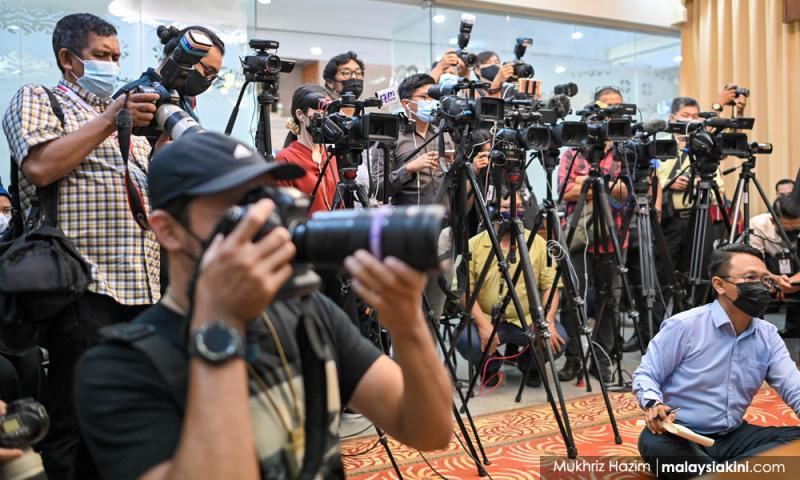LETTER | Govt must walk the talk on media freedom
LETTER | Communications Minister Fahmi Fadzil has slammed social media giant Meta for infringing media freedom by removing posts about Prime Minister Anwar Ibrahim’s official visit to Qatar from the accounts of several local news agencies.
This is laudable as Fahmi is protecting the rights of local media organisations.
No matter what political stance you are taking, Anwar’s official visit to Qatar is an important affair for both the domestic and international landscapes.
It is certainly newsworthy enough to be reported. News agencies should not be accused of “violating community standards” for carrying out their duties.
However, Fahmi’s statement also reminded me of the recent steep drop of Malaysia’s ranking in the World Press Freedom Index. With only 52.07 points, Malaysia now ranks 107 among 180 countries.
Fahmi had previously questioned Reporters Without Borders’ methods to establish the ranking. He also emphasised that no reporters have been arrested and no news portals have been banned by the Madani administration.
He may have forgotten about the blockage of MalaysiaNow’s portal in June last year. Despite denying involvement, many parties have shown evidence to prove that the government may have been the one behind the blockage.
The government was pressured to explain its take on the evidence, but the only thing it did was continuously deny involvement.
Press being politicised
He may also have forgotten that PAS mouthpiece Harakah Daily’s licence was revoked in November last year for publishing an article that questioned the government’s stance on the Israel-Hamas war.
Earlier this year, he announced a government’s version of the media code of ethics and is mulling to make the long-awaited media council the enforcer of this code.
The validity of the press cards of some journalists was also shortened, raising doubts about the government’s pledge to free the media during elections.
All these restrictions may have contributed to the drop in the World Press Freedom Index. Fahmi must face the truth that the government has now embarked on a path that politicises the media for its agenda.
It is a promise made since the 1990s that online media will not face the censorship imposed on print and broadcast media.
It is a legitimate right for a politician from the opposition to question the government’s stance on crucial global issues.
It is also the responsibility of the government to uphold media freedom by allowing it to self-regulate.
With the recent condemnation of Meta, Fahmi is showing double standards.
When it goes against the government’s political agenda, he suppresses the media without hesitance. When it is in favour of the government’s political agenda, he shouts media freedom very loudly.
The media council, expected to be brought to Parliament in July, should be the key to freeing all the media organisations in the country from strict government regulations.
It remains to be seen whether the government will truly uphold the standards of a free press, or make the media council another suppressive body for the government to control public discourse.
The views expressed here are those of the author/contributor and do not necessarily represent the views of Malaysiakini.
RM12.50 / month
- Unlimited access to award-winning journalism
- Comment and share your opinions on all our articles
- Gift interesting stories to your friends
- Tax deductable
